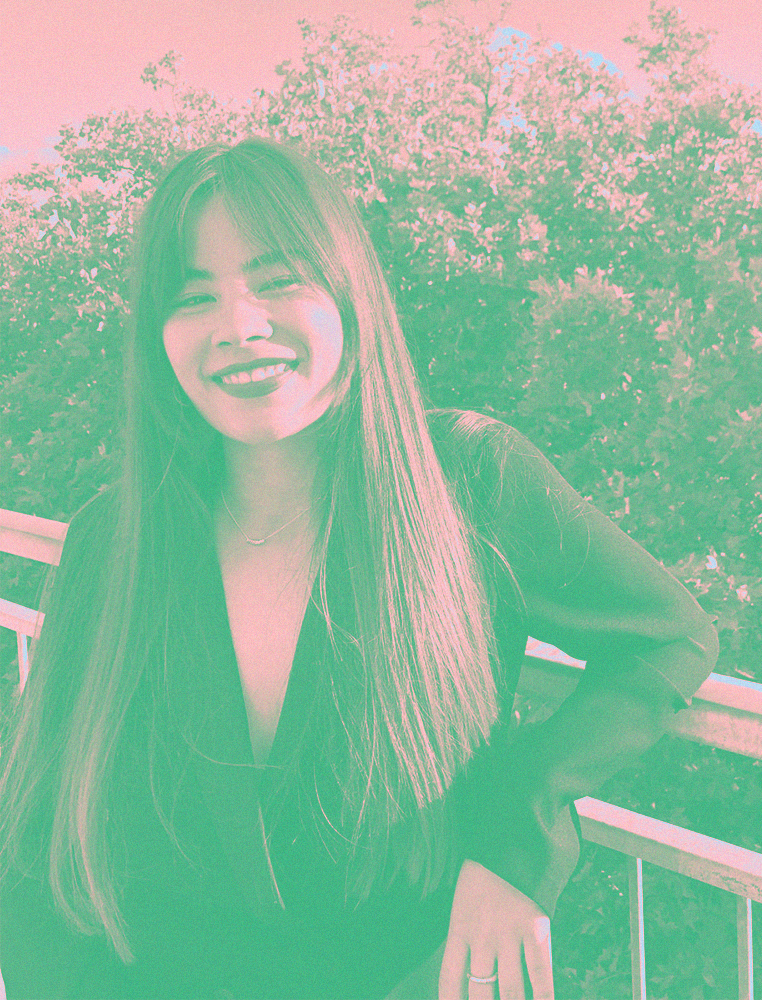CLAIRE TIO

CLAIRE TIO is an alumna of Erasmus University College (EUC) where she studied Philosophy, Politics and Economics. In 2019-2020, she followed the RASL minor and explored ways of blurring the divide between theory and practice. This year, CLAIRE continues to focus on social issues across and beyond the disciplines in the Master Engaging Public Issues at Erasmus University Rotterdam (EUR).
Why did you choose this minor?
How did the teaching method (e.g. workshops, lectures) of the minor differ from that of your major?
Did this teaching method change your ideas about what constitutes a ‘good education’?
What are the most valuable learning experiences?
Which social issues do you engage with in your practice?
What could be a possible next step for RASL?
Why did you choose this minor?
At EUC, I had the opportunity to study different disciplines and learn to approach complex social issues from different angles. But this was still in a narrow academic setting, which highlighted theoretical approaches, but did not provide me with practical ways to engage with the issues I studied. For me, the RASL minor was a great opportunity to step out of the familiar world of reading books and writing papers and see what is happening outside the ‘theory bubble’.
How did you experience the minor and transdisciplinary collaboration?
It’s been a rollercoaster ride, that’s for sure! In my view, collaborating across disciplines comes with some difficulties which you have to negotiate along the way. For instance, in my group, it took us quite some time to find our rhythm and create a common language. But I do think that such stages in which you are not exactly sure where you’re heading and what your specific role is, are crucial for your personal development. Through this minor, I came to realize the importance of collective reflection and ‘slowing down’.
How did the teaching method (e.g. workshops, lectures) of the minor differ from that of your major?
Although my major at EUC was already less traditionally set up than other studies, I believe there are very striking differences in teaching method. In the minor, there was much more focus on horizontal relations between teachers and students, I feel like we really worked as a team. Also, the minor was not result-oriented, which I think was very nice, because it enabled me to really enjoy all the workshops and lectures without having to worry about grades.
Did this teaching method change your ideas about what constitutes a ‘good education’?
Yes, definitely! In my opinion, the minor really breaks away with this traditional idea that good education means ‘excellence’. I feel that there is a certain arrogance in academia that science is the best way to generate knowledge about the world around us, and that the most promising future scientists are the students with the highest grades and most impressive resumes. In the minor, such hierarchical barriers don’t exist because every participant contributes equally and meaningfully. There, the focus is on engagement, not only within the group itself but on a community and societal level as well. I think the minor helped me develop a much broader set of skills that allows me to engage with social issues in a way that merely academic knowledge wouldn’t.
What are the most valuable learning experiences?
As I mentioned earlier, collaborating in a transdisciplinary setting is a wicked problem in itself because you have to deal with very divergent ideas. And this made me uncomfortable sometimes. But through this discomfort, I not only learned more about how to collaborate and communicate in general but also how to find my own way within a group and to articulate my ideas and experiences.
Also, I came to see that social issues have to be approached in a holistic, non-linear manner, which is something I have taken from the minor and am able to articulate within the master’s programme I am currently following. The minor has also really helped me use more imagination and creativity in, for instance, writing my final projects and bachelor’s thesis at EUC, and in that way made those learning experiences more fun and insightful.
Which social issues do you engage with in your practice?
I am really interested in the idea of intersectionality, which makes visible the connections between social issues and focusses on obscured lived experiences. So, I also researched this for my bachelor’s thesis: I looked at how activists articulate intersec-tionality into being and how theory and practice mutually constitute each other. The minor has actually brought me to the idea of writing on this topic because that’s when I came in touch with climate activists and members of the queer community in Rotterdam, who articulate intersectionality in their own ways.
Also, I think that the broad scope of intersectionality and the holistic, transdisciplinary approach to wicked problems really go hand-in-hand.
What could be a possible next step for RASL?
I just wish the combination of the arts and sciences could be more integrated into the whole education community. Although I really love what I’m studying now, after the minor, I was kind of sad that arts are not present as much in the humanities, and social and behavioural sciences curricula at EUR. I hope that there will be more opportunities for co-creation and collective learning in the future.